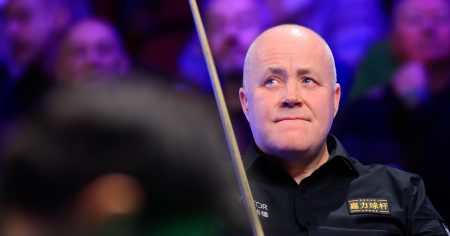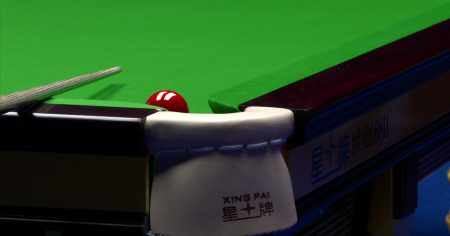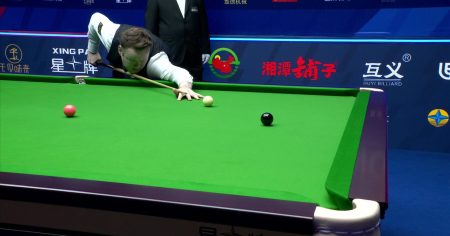Declan Rice, Arsenal’s record-breaking summer signing, has provided a comprehensive insight into the meticulous planning and execution behind the club’s potent set-piece threat, a key component of their attacking arsenal this season. In a conversation with TNT Sports expert Peter Crouch, Rice delved into the intricacies of Arsenal’s set-piece routines, highlighting the blend of innovative coaching, dedicated practice, and the individual brilliance of his teammates as the driving forces behind their success. He emphasized the importance of pre-planned routines and the specific roles assigned to each player, creating a structured yet dynamic approach that maximizes their chances of scoring from dead-ball situations. Rice’s analysis sheds light on a facet of the game often overlooked, revealing the strategic depth and meticulous preparation that underpins Arsenal’s offensive prowess.
Arsenal’s set-piece dominance isn’t merely a product of chance; it’s a testament to the meticulous work carried out on the training ground. Rice detailed the team’s rigorous practice sessions, explaining how they dedicate significant time to rehearsing various set-piece routines, analyzing opponent weaknesses, and refining their delivery and movement. This dedicated approach, coupled with the coaching staff’s innovative strategies, allows the players to anticipate and exploit opportunities with precision and confidence. He highlighted the emphasis on variety in their set-piece repertoire, allowing them to adapt to different game situations and opposition defenses, ensuring they always possess a range of options to unlock the opposition. Rice’s explanation underscores the importance of meticulous preparation and repetition in achieving consistent success from set pieces, transforming them from random occurrences into calculated scoring opportunities.
A crucial element of Arsenal’s set-piece success lies in the individual quality of their players, particularly their aerial prowess and ability to deliver pinpoint crosses. Rice praised the delivery of players like Martin Odegaard and Bukayo Saka, emphasizing their ability to place the ball with exceptional accuracy, creating prime scoring chances for their teammates. He also highlighted the importance of having physically imposing players in the box, such as himself, Gabriel Magalhães, and William Saliba, who can win aerial duels and create havoc for opposing defenses. This combination of pinpoint delivery and aerial dominance makes Arsenal a formidable threat from corners and free-kicks, giving them a significant advantage in tight matches. The individual skillsets of these players, combined with their practiced routines, create a potent synergy that has proven difficult for opponents to neutralize.
Rice also emphasized the psychological aspect of set pieces, explaining how the anticipation and pressure surrounding these moments can often unsettle opponents. The knowledge that Arsenal possess a significant threat from dead-ball situations creates an added layer of pressure on the defending team, potentially leading to errors and lapses in concentration. This psychological advantage can be just as crucial as the physical and tactical elements, further contributing to Arsenal’s effectiveness from set-pieces. He pointed out how the team’s confidence in their set-piece routines can also have a galvanizing effect, boosting morale and creating a belief that they can score from any given set piece.
Furthermore, Rice discussed how the team’s set-piece strategy is constantly evolving, with the coaching staff regularly analyzing their performance and making adjustments to stay ahead of the curve. This adaptive approach ensures that their set-piece routines remain unpredictable and effective, even as opponents become more familiar with their general approach. He noted how they study opposition set-piece defenses and identify weaknesses they can exploit, allowing them to tailor their routines to each specific opponent. This continuous improvement and adaptation is a key factor in maintaining their edge and ensuring that their set-piece prowess remains a consistent weapon in their attacking arsenal.
Finally, Rice’s detailed analysis offers a valuable glimpse into the tactical intricacies of modern football, highlighting how a seemingly straightforward aspect of the game, like set pieces, can be transformed into a highly effective scoring weapon through meticulous planning, dedicated practice, and the intelligent utilization of individual strengths. His insights underscore the importance of a holistic approach to set pieces, combining technical proficiency, tactical awareness, and psychological factors to maximize their impact on the game. This meticulous approach, championed by Mikel Arteta and embraced by the entire squad, has undoubtedly contributed significantly to Arsenal’s strong start to the season and positions them as a formidable force in the Premier League. The conversation with Crouch offers a fascinating peek behind the curtain, revealing the meticulous work that goes into transforming set pieces into a potent and consistent source of goals.














